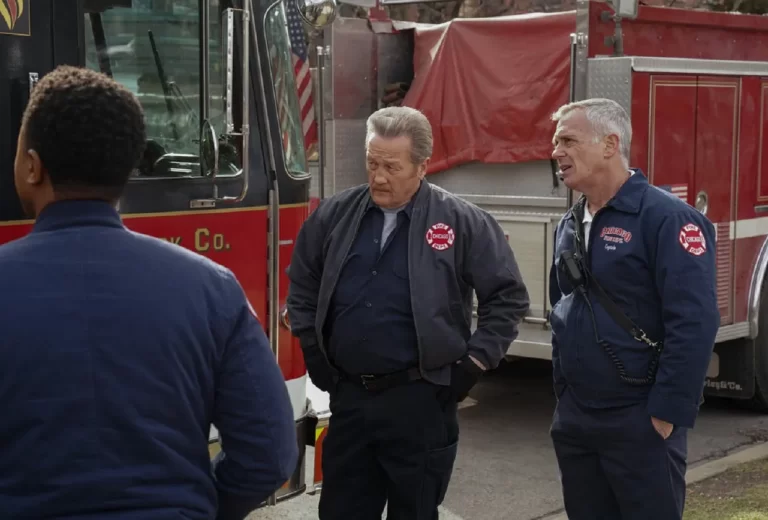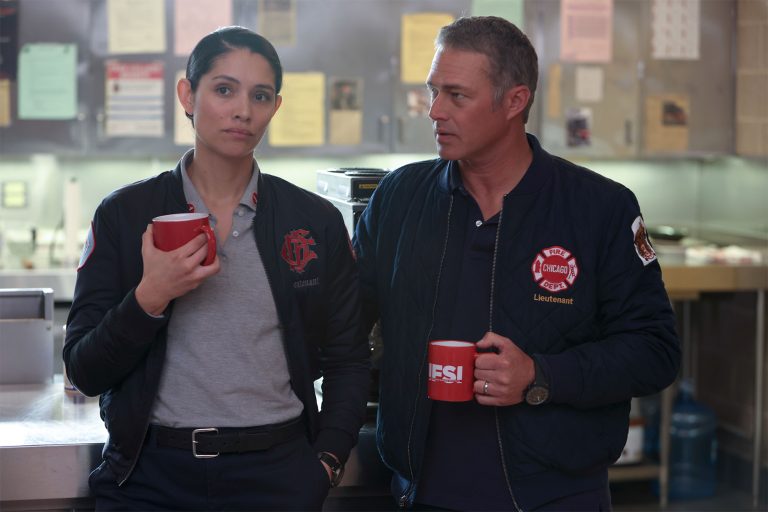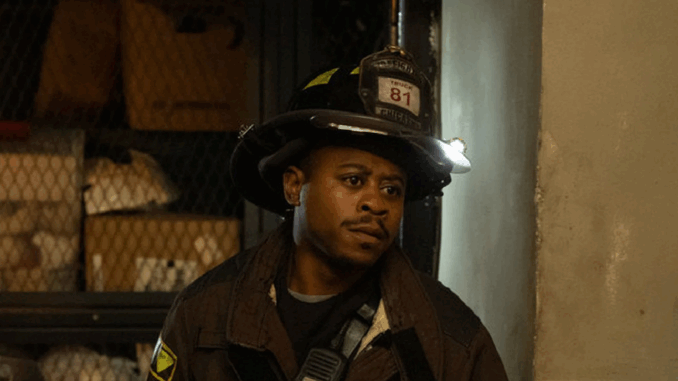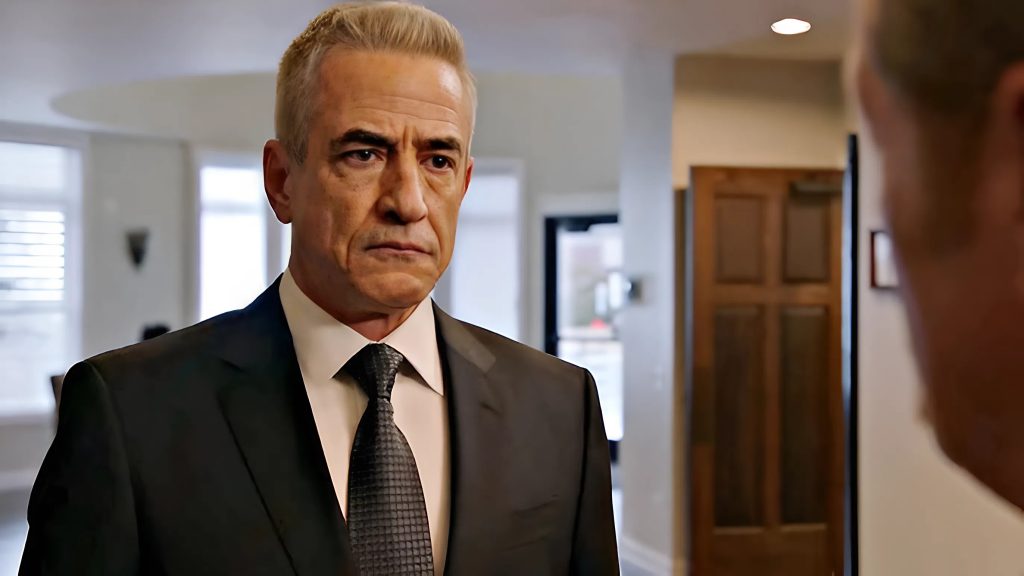
For over a decade, Chicago Fire has been a cornerstone of NBC’s One Chicago franchise, captivating audiences with its high-octane rescues and the unwavering bond of Firehouse 51. However, recent seasons have seen a notable shift, with a revolving door of beloved characters, fluctuating storylines, and a feeling that the show, at times, might be losing its way. But the latest updates regarding Season 14 offer a glimmer of hope, hinting at a strategic recalibration that could very well put the show firmly back on track.
The most significant update, and the one that holds the most promise for rejuvenating the series, is the confirmation of Chief Dom Pascal’s (Dermot Mulroney) return, coupled with the showrunners’ stated intention to re-emphasize the foundational strength of Firehouse 51. This isn’t just about bringing back a character; it’s about solidifying a leadership presence that can anchor the team amidst the impending departures and the ongoing changes to the Chicago Fire Department.
In an era where many long-running shows suffer from a lack of consistent leadership and character focus, Chicago Fire‘s decision to lean into Pascal’s evolving role is a shrewd one. When Pascal first arrived, he was an antagonist, a by-the-book bureaucrat who stood in stark contrast to the beloved Chief Boden. His rigid adherence to rules and his somewhat detached demeanor initially alienated both the on-screen firefighters and the audience. However, the writers, through a masterful slow burn, peeled back the layers of his character, revealing a man scarred by personal tragedy who eventually found an unexpected family in Firehouse 51.
His return, therefore, isn’t just a plot device; it’s a statement. It signals a commitment to a character who has undergone significant growth, transforming from an outsider into a respected, if still complex, part of the team. This allows the show to explore new facets of leadership – one that combines professional discipline with a deep, personal understanding of the firefighters’ lives and sacrifices. This is the kind of nuanced character development that built the show’s initial success, and Pascal’s arc promises a return to that depth.
The necessity of this strategic shift becomes even clearer when considering the confirmed exits of Daniel Kyri (Darren Ritter) and Jake Lockett (Sam Carver). These departures, reportedly driven by budget cuts rather than creative choice, will leave significant voids within the firehouse. Ritter, with his gentle nature and burgeoning photography career, and Carver, with his complex journey of redemption and his budding romance with Violet, both brought unique dynamics to the ensemble. Their absence will inevitably reshape the team, creating a sense of instability that a strong, consistent leadership figure like Pascal can help to mitigate.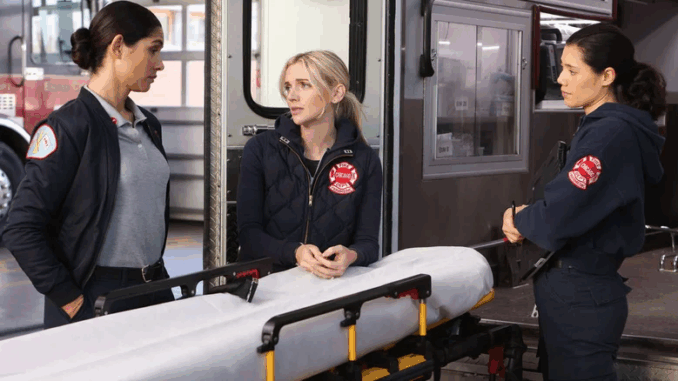
Showrunner Andrea Newman’s hints about “a lot of turnover and a lot of craziness” coming to the Chicago Fire Department suggest that Season 14 will embrace these changes head-on. Rather than trying to ignore or quickly replace the departed characters, the show seems poised to explore the emotional and professional ramifications of such shifts. This is where Pascal’s role becomes critical. As the leader, he will be instrumental in guiding the remaining members through this period of adjustment, fostering new bonds, and reinforcing the core values of Firehouse 51. This isn’t just about fighting fires; it’s about rebuilding a family.
Furthermore, the potential for a farewell storyline for a beloved, long-departed character (speculated to be Matthew Casey) adds another layer to this strategic push. If this indeed comes to fruition, it serves multiple purposes. Firstly, it offers a powerful nostalgic anchor, reminding long-time fans of the show’s rich history and the characters who built its foundation. Secondly, it provides emotional closure, not just for the character in question but for the audience who invested so heavily in their journey. This kind of storytelling demonstrates respect for the show’s past while still allowing it to evolve. It’s a bridge between eras, acknowledging what came before while confidently stepping into the future.
The return to strong, character-driven leadership and the willingness to explore the emotional impact of cast changes are precisely how Chicago Fire can get back on track. For too long, the show has occasionally felt a bit adrift, struggling to find its footing post-Casey and post-Boden. By focusing on Pascal’s solidified role, embracing the genuine turmoil of departing characters, and potentially providing a meaningful goodbye to a fan favorite, the show can regain its narrative coherence and emotional resonance.
This renewed focus on character arcs and internal team dynamics aligns with what made Chicago Fire so compelling in its early seasons. It was never just about the fires; it was about the people who fought them – their struggles, their friendships, their love lives, and their unwavering dedication to each other. By investing in these foundational elements, Season 14 has the opportunity to strip away some of the recent narrative clutter and return to the heart of what makes Firehouse 51 so special.
In essence, the latest updates suggest a show that is listening to its audience and strategically repositioning itself for continued success. By recognizing the need for strong leadership, acknowledging the impact of character departures, and weaving in heartfelt moments of closure, Chicago Fire is poised to deliver a season that feels both fresh and familiar. For fans who have worried about the show’s direction, Season 14 could be the much-needed course correction that brings Firehouse 51 roaring back to its former glory.
